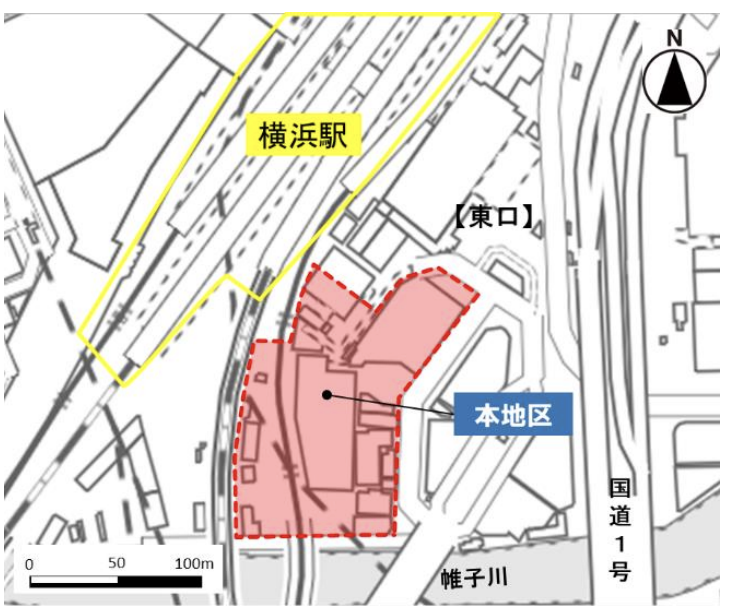For those of you who are looking for rental properties, youmay be hearing the term "rent guarantee company"more and more often. While a joint guarantor was generally required in conventional rental contracts, the number of properties that now require the use of a rent guarantee company has increased significantly.
INA&Associates has been involved in the property management industry for many years. As we receive questions about rent guarantee companies from our clients on a daily basis, we realize that many people do not have a proper understanding of this system. Rent guarantee companies are more than just a cost-sharing arrangement; they play an important role for both tenants and landlords in today's rental market.
In this article, we provide a comprehensive explanation of the information that everyone considering a rental contract should know, from the basic structure of a rent guarantee company to cost rates, examination points, and how to choose one. By acquiring the appropriate knowledge, you will be able to proceed with your rental contract with more peace of mind. We will also explain in detail the points to keep in mind when using a rent guarantee company and how to avoid problems.
For many people, renting a house is one of the most important choices in their lives. We hope that you will gain a proper understanding of rent guarantee companies and realize optimal rental management.
Basic Knowledge of Rent Guarantee Companies
What is a rent guarantee company?
Arent guarantee companyis a company that provides a guarantee service to pay rent to the landlord on behalf of the tenant in the event that the tenant fails to pay rent in arrears under the rental contract. In conventional rental contracts, it was common to have a relative or acquaintance act as a co-signer, but nowadays, rent guarantee companies have become the norm.
The greatest feature of a rent guarantee company is that the tenant pays a guarantee fee and can conclude a lease contract without a joint guarantor. This makes it possible for tenants who have no relatives who can act as a guarantor or who do not want to be bothered by a guarantor to rent a property with peace of mind.
In recent years, the use of a rent guarantee company has become a requirement for more than 80% of properties in the rental market. This is due to the significant benefits for landlords in reducing the risk of rent delinquency. In addition, the aging of the population and the shift to nuclear families have made it increasingly difficult to use the traditional joint guarantor system, which has also encouraged the proliferation of rent guarantee companies.
Rent guarantee companies do not simply replace rent; they also provide a variety of services related to rental contracts, from tenant screening to post-contract support. This contributes to the overall health and efficiency of the rental market.
How Rent Guarantee Companies Work
The structure of a rent guarantee company consists of three parties: the tenant, the landlord, and the guarantee company. First, the tenant enters into a guarantee agreement with the guarantee company at the same time as signing the rental contract, and pays a predetermined guarantee fee. This guarantee fee is positioned as compensation for the services provided by the guarantee company.
If the tenant fails to pay rent on time, the guarantee company subrogates the rent to the landlord based on the contract. This guarantees that the landlord will be able to secure rental income and conduct stable rental management. On the other hand, the guarantee company exercises its right of recourse against the tenant for the subrogated amount, and collects the rent it has paid in advance.
The scope of the guarantee generally covers not only rent but also common service fees, management fees, renewal fees, restoration fees, and various other expenses related to the rental contract. However, the scope of the guarantee varies depending on the guarantee company and the details of the contract, so it is important to confirm the details before signing the contract.
The first step in the process of dealing with nonpayment of rent is for the guarantee company to demand payment from the tenant. The demand is made by phone or in writing, and if the delinquency is prolonged, the company may send a notice by content-certified mail or move to legal proceedings. Guarantee companies have professional knowledge and experience, so they follow the appropriate procedures to collect debts.
Types of Rent Guarantee Companies
Rent guarantee companies are classified into three main types according to their operating entities and screening methods. Each has its own characteristics, screening criteria, and cost structure, which is important for tenants to understand.
Credit guaranteecompanies are guarantee companies operated by credit card companies and consumer credit companies. These companies conduct screening using the databases of personal credit information agencies such as CIC (CIC Corporation) and JICC (Japan Credit Information Agency, Inc.). Therefore, credit card usage history, borrowing status, and past delinquency information have a significant impact on the screening process. Although the screening process for consumer credit guarantee companies is relatively rigorous, they provide stable service for those who have no credit history problems.
LICC-affiliated guarantee companies (association-affiliated) are guarantee companies that are members of the Leasing and Investment Guarantee Association of Japan (LICC), an industry organization that collects, manages, and provides subrogation payment information, and shares tenants' rent payment history among member companies. Therefore, if a tenant has had rent delinquency with another LICC member company in the past, it may affect the screening process. On the other hand, since LICC-affiliated guarantors focus on the track record of rent payment, even if there are problems with the credit report, the applicant may be approved if the applicant is judged to have the ability to pay rent.
Independentguarantee companies are independent guarantee companies that are not members of any of the above industry associations. These companies have their own screening criteria and may be available to those who have not been screened by other guarantee companies. In many cases, the screening standards are relatively loose, making it easier for those with unstable incomes or uncertain credit histories to pass the screening process. However, guarantee fees may be higher than those of other types of guarantee companies.
The table below summarizes the characteristics of each type of guarantee company.
| Type | Screening Criteria | Main screening items | Strictness of examination | Guarantee fee |
| Consumer Credit | Emphasis on personal credit information | Credit history, borrowing status | Strict | 30-100% of rent |
| LICC-affiliated | Emphasis on rent payment history | Past rent delinquency history | Moderate | 30-100% of rent |
| Independent | Independent Criteria | Income, occupation, interview results | Moderate | 30-60% of rent |
Advantages and disadvantages of using a rent guarantee company
Advantages
The advantages of using a rent guarantee company are manifold for both the tenant and the landlord. First, the biggest advantage for tenantsis that they can conclude a lease contract withoutthe need for a guarantor. Under the conventional joint guarantor system, a relative or acquaintance would be financially responsible for the tenant, which would place a heavy psychological burden on the tenant, and if a guarantor could not be found, the rental contract itself could be difficult to conclude.
By using a rent guarantee company, this complexity of relationships can be avoided, and rental contracts can be concluded more easily. In particular, rent guarantee companies have become an important option for singles, the elderly, and foreign nationals, all of whom tend to be disadvantaged by the traditional guarantor system.
The ease of passing tenant screening is another important advantage. With the intervention of a rent guarantee company, the landlord can reduce the risk of rent delinquency and tends to be more flexible in its judgment of tenant attributes. For example, tenants who have just changed jobs and have been with the company for a short period of time, or freelancers with unstable incomes, are more likely to be approved if they pass the screening by the guarantee company.
A reduced security deposit is also an advantage that should not be overlooked. If the rent guarantee company also guarantees the cost of restoring the property to its original condition, the landlord does not need to keep a large security deposit, thereby reducing the initial cost of moving in. This effect is especially noticeable in expensive properties, and can significantly reduce the financial burden on the tenant.
For landlords, the use of a rent guarantee company also brings significant benefits. Most important is the stabilization of rental income. Since the guarantee company can ensure that payments are received even in the event of rent arrears, it makes it easier to plan income and expenditure for rental management. In addition, since the guarantee company also handles reminders to delinquent tenants and legal procedures on behalf of the landlord, the mental and time burden on the landlord is greatly reduced.
Disadvantages
On the other hand, there are some disadvantages to using a rent guarantee company. The biggest disadvantage for tenantsis theburden of the guarantee fee. The initial guarantee fee is approximately 50% to 100% of the rent, and an annual renewal fee of approximately 10,000 to 20,000 yen is charged on an ongoing basis, which is a considerable cost burden for long-term residents.
For example, if the initial guarantee fee is 50% of the rent and the annual renewal fee is 10,000 yen for a property with a rent of 80,000 yen, the total guarantee fee will be 90,000 yen for a five-year residence. Since these fees are in addition to the rent, the overall cost of housing will increase.
Stricter screening is another important disadvantage. Rent guarantee companies have built their own databases and conduct detailed investigations of past delinquency history and credit information. Once there is a single instance of rent delinquency or a credit incident, this information is recorded for a long period of time and may affect future rental contracts. In particular, because information is shared among LICC member companies, a problem with one company may make it difficult to be approved by other companies.
The risk of nonpayment of rent cannot be overlooked. Just because a rent guarantee company covers your rent does not mean that you are allowed to be in arrears. Guarantee companies will strictly collect the amount of rent they have advanced, and in some cases, they may even move to legal proceedings. In addition, a history of delinquency will be recorded in your credit report and may have a negative impact on your future credit card and mortgage applications.
Another issue is the complexity of contracts. In addition to the lease contract, a guarantee agreement must also be concluded, which increases the number of contract documents. In addition, it is necessary to understand the exact scope of the guarantee, renewal terms, and cancellation terms, which can make it difficult to understand the details of the contract.
Furthermore, the bankruptcy risk of the guarantee company must also be considered. If the guarantee company goes bankrupt, the guarantee service may not be continued, which may cause problems between the lender and the tenant. Therefore, financial soundness is also an important criterion in selecting a guarantee company.
Rent Guarantee Company Expenses and Market Prices
Initial guarantee fee
Theinitial guaranteefeepaid when using a rent guarantee companyis one of the most important initial costs in a rental contract. This fee varies greatly depending on the guarantee company and the terms of the contract, but in general, the market rate is about 50% to 100% of the rent.
The calculation standard for the initial guarantee fee is mainly based on the monthly rent. However, there are cases where the total rent including common service charges and management fees is used as the standard, so you need to confirm this before signing the contract. In addition, the fee rate often changes depending on whether or not there is a joint guarantor, and the rate tends to be set lower when there is a joint guarantor.
To give a concrete example, if the initial guarantee fee is 50% of the rent for an 80,000 yen property, 40,000 yen must be paid. For 100% of the rent, the fee would be 80,000 yen, which, when combined with the deposit and key money, is a substantial initial cost. Therefore, it is important to consider not only the rent but also the total cost including the guarantee fee when selecting a property.
Looking at the different types of guarantee companies, the general market rates for consumer credit guarantee companies range from 30% to 100% of the rent, for LICC guarantee companies from 30% to 100% of the rent, and for independent guarantee companies from 30% to 60% of the rent. Independent guarantee companies are often comparatively less expensive, but their screening standards and guarantees may differ.
Another important point is the difference in rates depending on whether there is a co-signer or not. Generally, the fee is about 20-30% of the rent if there is a joint guarantor, and about 50-100% of the rent if there is no joint guarantor. This difference is due to the fact that having a co-signer reduces the risk of the guarantee company.
Renewal Guarantee Fee
In addition to the initial guarantee fee, arenewal guarantee feeis charged onan ongoing basis.This is a periodic fee to continue the guarantee contract, and generally costs around 10,000 to 20,000 yen per year. However, some guarantee companies charge a monthly fee, in which case you will pay about 1-3% of the total rent each month.
The method of payment of the renewal guarantee fee varies depending on the guarantee company. In the case of annual payment, it is usually paid in a lump sum at the time of contract renewal, while in the case of monthly payment, it is usually paid monthly along with the rent. In the case of monthly payment, an additional 800-2,400 yen per month is required for a property with a rent of 80,000 yen.
Considering the total cost of long-term residence, the burden of renewal guarantee fees should not be taken lightly. For example, if the annual renewal fee is 15,000 yen, the cost will be 150,000 yen over 10 years. This amount is equivalent to two months' rent, and its share of the total housing cost cannot be ignored.
The following table summarizes the cost structure of major guarantee companies.
| Guarantee company type | Initial Guarantee Fee (with Guarantor) | Initial guarantee fee (without guarantor) | Renewal Guarantee Fee | Payment Method |
| Credit Union Company A | 30% of rent | 50% of rent | 10,000 yen per year | Annual payment |
| Credit union B | 50% of rent | 100% of rent | 15,000 yen per year | Annual payment |
| LICC-affiliated company A | 30% of rent | 80% of rent | 10,000 yen per year | Annual Payment |
| LICC Company B | 50% of rent | 50% of rent | 20% of rent/year | Annual Payment |
| Independent Company A | 30% of rent | 60% of rent | 1% of monthly rent | Monthly Payment |
| Independent Company B | 40% of rent | 50% of rent | 8,000 yen per year | Annual payment |
Points to keep costs down
There are several points to consider in order to reduce the cost of a rent guarantee company. First, it is important to compare the fee structures of several guarantee companies. There may be more than one warranty company available for the same property, and there may be a difference in cost.
If you are able to have a co-signer, the guarantee fee can be significantly reduced. If you can ask a relative to cosign for you, that option is also worth considering. However, recently, an increasing number of properties require the use of a guarantee company even if there is a joint guarantor, so you need to confirm this in advance.
If you intend to sign a long-term contract, it is important to select a guarantee company taking into consideration the burden of renewal guarantee fees. If the initial guarantee fee is low but the renewal guarantee fee is high, the total cost may be higher in the long run.
In addition, some guarantee companies may offer specials such as early signing discounts or student discounts. By taking advantage of these programs, you may be able to reduce the cost burden.
Tenant screening process and points to note
Screening Items
The tenant screening process bya rent guarantee companyis an important process that comprehensively determines the tenant's ability to pay rent and creditworthiness. Screening items vary by guarantee company, but in general, the main criteria are job type and employment status, income status, length of employment, age, and past delinquency history.
Regarding the type of job and employment status, stability is important. Public servants and full-time employees of large companies are most highly rated and are most likely to pass the screening process. On the other hand, self-employed persons, freelancers, temporary workers, and part-time workers are considered to have unstable income and tend to be screened more strictly. However, these types of jobs may still be approved if they have sufficient income and a track record of continuous transactions.
The ratio of income to rent is one of the most important screening criteria. Generally speaking, rent should be within one-third of your monthly income. For example, for a property with a rent of 80,000 yen, the standard is a monthly income of 240,000 yen or more. However, this standard varies by guarantee company, with some strictly requiring no more than one-fourth of monthly income, while others allow as little as one-half.
The length of employment is also an important factor. If you have just changed jobs or just started working, you may be considered to have concerns about the continuity of your income, which may affect the screening process. Generally, at least one year of continuous service is desirable, but if you have changed jobs to a larger company or have received a promotion, the company may be more flexible in its judgment.
Past delinquency history is the most strictly scrutinized item. In addition to rent, late payment of credit cards, cell phone bills, and unpaid utility bills may also affect the screening process. In particular, since information on past rent delinquencies is shared among LICC member companies, even a single delinquency can affect the screening process over a long period of time.
Screening Period and Preparation Documents
The screening period for rent guarantee companies generally lasts from 3 to 7 days. If there are no deficiencies in the documents and the confirmation of enrollment goes smoothly, the result may be announced in as little as one day. However, during busy periods or when additional documents are required, it may take more than one week.
The documents required for the screening process vary from guarantor to guarantor, but in general, the following documents are requested. First, a copy of a driver's license, health insurance card, or passport is required as identification documents. It is important that these documents are valid and updated with the latest information if there is a change of address.
Proof of income documents are also required. For salaried employees, withholding tax, pay slips (for the last 2 to 3 months), and proof of income are required. For self-employed persons, a copy of tax return, tax payment certificate, and documents proving business sales are required. These documents should be up-to-date and should be prepared for multiple years to prove continuity of income.
Proof of enrollment is another important document. A certificate of enrollment from your employer or a copy of your employment contract is required. It is also important to contact your workplace in advance, as some guarantee companies will call your place of employment to confirm your enrollment.
The following table summarizes the key points for passing the screening process.
| Screening Items | Favorable conditions | Unfavorable conditions | Measures |
| Occupation/employment status | Civil servant, full-time employee | Self-employed, freelance | Prepare documents proving income stability |
| Ratio of income to rent | Rent is within 1/3 of monthly income | Rent is more than 1/2 of monthly income | Consider cheaper housing |
| Number of years of employment | More than 1 year | Immediately after changing jobs | Explain previous work experience and promotions |
| Credit history | No history of delinquent payments | Past delinquency history | Explain improvement status, consider co-signer |
| Age | 20s to 50s | Elderly, minors | Emphasize income stability |
Tips to make it easier to pass the screening process
There are several tips to make it easier to pass the screening process for a rent guarantee company. First, it is important to prepare your documents completely. Submitting flawless documents promptly will make a good impression on the screening staff. It is also advisable to have up-to-date proof of income documents and, if possible, multiple methods of proof.
Response to enrollment verification is another important point. It is necessary to contact your employer in advance to ensure that they can respond to a call from the guarantee company. In addition, promptly responding to the call to confirm your identity will facilitate the screening process.
It is also important to maintain an appropriate balance between rent and income. If your rent is too high relative to your income, consider a cheaper property or a co-signer. Also, if you have multiple sources of income, reporting them combined may be advantageous for the screening process.
If you have a history of past delinquencies, it is important to clearly explain the reasons for the delinquency and how it has improved. If you can prove that the delinquency was due to temporary circumstances and has now improved, you may be approved. In addition, having a co-signer can increase your chances of being approved.
Applying to multiple guarantee companies at the same time is another strategy. Since different guarantee companies have different screening criteria, even if you fail to be screened by one company, you may still be approved by another company. However, please note that undergoing multiple screenings in a short period of time may affect your credit report.
Key Points for Selecting a Rent Guarantee Company
How to identify a reliable guarantee company
Choosing the right rent guarantee company is crucial to a secure rental experience. In order to identify a reliable guarantee company, you need to check several important points.
First, it is important to check for membership in industry associations. Guarantee companies that are members of industry associations such as the National Association of Lease Guarantee Companies (LICC) and the Lease Guarantee Organization (LGO) meet certain standards and are considered highly reliable within the industry. These organizations require their member companies to conduct proper business operations and play an important role in consumer protection.
The number of years the company has been in business and its track record are also important criteria. Guarantee companies that have been in business for a long time are considered to have a stable business foundation. In addition, a company with an abundant number of cases handled and a track record of contracts has accumulated the know-how to deal with various cases, and can be expected to respond in case of trouble.
Financial soundness is also a point that cannot be overlooked. It is important to check the company's financial condition because if the guarantee company goes bankrupt, the guarantee service may not be continued. Guarantee companies that are subsidiaries of listed companies or major corporations are generally considered to have high financial stability.
The quality of services is also an important factor: it is advisable to choose a guarantee company that offers services for the convenience of users, such as a 24-hour call center, multilingual support, and a full range of online procedures.
Word of mouth and reputation are also helpful. By checking reviews on Internet review sites and ratings from real estate companies, you can ascertain the level of satisfaction of actual users. However, since word-of-mouth information can be subjective, it is important to make a comprehensive judgment based on multiple sources.
Precautions when signing a contract
When entering into a contract with a rent guarantee company, it is extremely important to review the details of the contract. In particular, the scope of the guarantee must be clearly understood. Make sure that not only rent, but also common service fees, management fees, renewal fees, restoration fees, and late charges are included in the guarantee coverage.
The warranty period and renewal terms are also important. The term of a warranty contract is usually one to two years, and is usually renewed in conjunction with the lease contract. It is important to confirm the renewal conditions and renewal fees in advance to understand the total cost of long-term residence.
Termination conditions should also be confirmed in detail. Clarify how the guarantee contract will be handled if the rental contract is cancelled, whether the guarantee fee will be refunded if the contract is cancelled mid-term, and how the cancellation procedure will be handled. It is also important to understand the conditions under which the guarantee company may cancel the contract.
It is also advisable to confirm in advance the process for dealing with delinquent payments. By understanding the method of demand, the timing of shifting to legal proceedings, and the calculation method for late payment penalties, you will be able to respond appropriately in the event of an emergency.
You should also pay attention to the handling of personal information. Guarantee companies collect a variety of personal information for screening purposes, and it is important to confirm how this information is managed and used. In particular, it is necessary to understand how information is provided to credit information agencies and shared with other companies.
It is also necessary to confirm the handling of cases where a cosigner is provided. If there is a joint guarantor but the use of a guarantee company is required, it is important to clarify how the scope of responsibility of the joint guarantor and that of the guarantee company will be shared.
It is also important that you do not hesitate to ask questions about any technical terms or legal expressions in the contract if you have any questions. Entering into a contract without fully understanding the details of the contract may cause problems later on.
In addition, if you have an opportunity to meet with the person in charge of the guarantee company before signing the contract, it is a good opportunity to confirm the company's attitude and service quality. It is possible to determine whether or not it is a reliable guarantee company by comprehensively judging the accuracy of the answer to the question, the understandability of the explanation, and the politeness of the customer support, etc.
Conclusion
Rent guaranteecompanies have become an indispensable part of the modern rental market. As a new alternative to the traditional joint guarantor system, they play an important role for both tenants and landlords, and their importance is expected to increase in the future.
As explained in this article, there are three main types of rent guarantee companies: consumer credit, LICC, and independent, each with their own characteristics and screening criteria. It is important to select the most appropriate guarantee company according to the tenant's situation and the conditions of the property. In terms of cost, the general market rate is about 50-100% of the rent as the initial guarantee fee and about 10,000-20,000 yen as the annual renewal fee, so the total cost should be carefully considered when considering a long-term residence.
In screening tenants, important criteria include job type, employment status, income status, and past delinquency history. In order to make it easier to pass the screening, perfect preparation of documents, appropriate response to the employment verification, and optimization of the balance between income and rent are effective. Even if you have a history of past delinquency, you may be able to pass the screening process by clearly explaining your improvement status.
In selecting a guarantee company, it is important to make a comprehensive assessment of the company's membership in industry associations, the company's track record and financial soundness, and the quality of its services. When signing a contract, it is important to confirm in detail the scope of the guarantee, renewal terms, cancellation terms, and handling of personal information, and do not hesitate to ask any questions that are unclear.
While there is a guarantee fee, the use of a rent guarantee company offers many advantages, including the possibility of signing a contract without the need for a guarantor, ease of passing the tenant screening, and reduction of the security deposit. In particular, rent guarantee companies are an important option for those who tend to be disadvantaged by the traditional guarantor system, such as singles, the elderly, and foreign nationals.
However, even when using a rent guarantee company, you must avoid being behind in your rent payments. Just because a guarantee company covers your rent does not mean that you are allowed to be delinquent, and strict collection procedures will be implemented, which may affect your credit report. Responsible rent payment is the basis for a secure rental life.
Renting a home is an important life choice for many people. We hope that by correctly understanding rent guarantee companies and making the best choice for your situation, you will realize a more secure and comfortable housing choice.
At INA&Associates, we place "human resources" and "trust" at the core of our management, and we support each and every one of our clients in selecting the most suitable housing. If you have any questions about rent guarantee companies or if you are having trouble managing your rental property, please do not hesitate to contact us. With our wealth of experience and expertise, we will do our best to support you in your search for your ideal home. We look forward to serving you at our Osaka Head Office, Tokyo Sales Office, and Tokyo Metropolitan Sales Office.
Frequently Asked Questions
Q1. Do I have to use a rent guarantee company?
Whether or not the use of a rent guarantee company is mandatory depends on the property and the landlord's policy. Currently, the use of a rent guarantee company is a requirement for more than 80% of rental properties, but some properties can be contracted with only a joint guarantor.
However, even in cases where a joint guarantor can be provided, the use of a guarantee company is increasingly being requested. This is so that the lessor can obtain double assurance and manage the rental business with more peace of mind. When considering a property, it is important to confirm in advance whether or not the use of a guarantee company is required.
Q2. Do I have to pay a monthly guarantee fee?
The method of payment of the guarantee fee varies from guarantee company to guarantee company. The most common method is to pay the initial guarantee fee in a lump sum at the time of contract, followed by annual renewal fees. The annual renewal fee is usually around 10,000 to 20,000 yen and is paid when the contract is renewed.
On the other hand, some guarantee companies use a monthly basis, in which case the guarantee fee is paid monthly along with the rent. The monthly guarantee fee is usually around 1-3% of the total rent. Since the advantage of either method depends on the length of residence and your personal financial plan, we recommend that you compare the total cost before signing a contract.
Q3. What should I do if I fail the screening?
Even if you fail to be screened by one guarantee company, you may be screened by another guarantee company. Since different guarantee companies have different screening criteria, it is effective to apply to different types of guarantee companies, for example, if you fail with a consumer credit company, try an independent company.
It is also important to analyze the reasons why you failed the screening and take measures if there are points that can be improved. For example, if the ratio of income to rent is an issue, considering a cheaper property or having a joint guarantor may be advantageous to the screening process. We recommend that you consult with your real estate agent and consider alternative solutions.
Q4. What should I do if I fail to pay rent on time?
If you become delinquent in paying rent, it is important to contact the guarantee company immediately and explain the situation. If the arrears are due to temporary circumstances, you may be able to receive a flexible response by discussing a payment plan with them.
If the delinquency is left unattended, the demand for payment will become more severe and may eventually lead to legal proceedings. In addition, a history of delinquent payments will be recorded on your credit report and may adversely affect future rental contracts and credit screening. If you find yourself in a difficult situation, we recommend that you consult with a specialist or a consultation service as soon as possible.
Q5. Is it possible to change the guarantee company?
Basically, it is possible to change the guarantee company when the lease contract is renewed. However, in many cases, only the guarantee company designated by the lessor or management company can be used, so you need to confirm this in advance.
Reasons for changing guarantee companies include reduction of guarantee fees, improvement of service content, and differences in screening criteria. When considering a change, it is important to confirm that there are no problems with your current contract status or credit history before proceeding, as you will need to undergo an examination with the new guarantee company. Also, be sure to confirm in advance the fees and administrative procedures associated with the change.

Daisuke Inazawa
Representative Director of INA&Associates Inc. Based in Osaka, Tokyo, and Kanagawa, he is engaged in real estate sales, leasing, and management. He provides services based on his extensive experience in the real estate industry. Based on the philosophy that “human resources are a company's most important asset,” he places great importance on human resource development. He continues to take on the challenge of creating sustainable corporate value.

.png)













